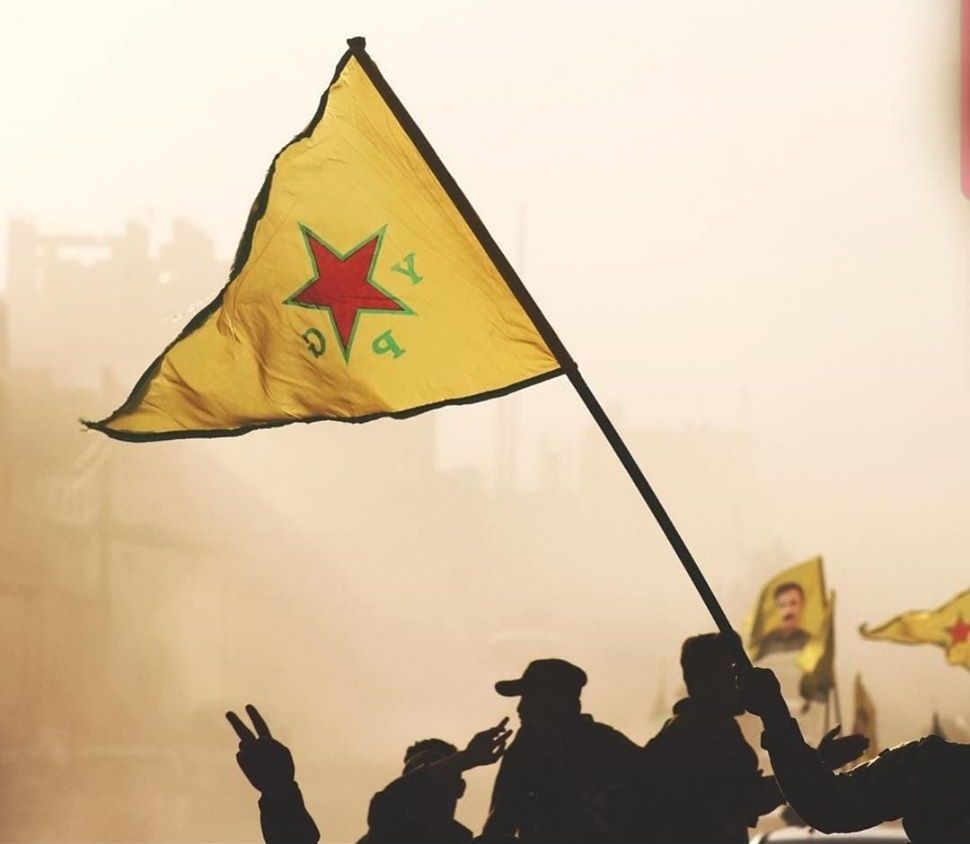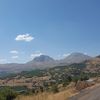The Road to Revolution, interview with YPG volunteer Jêhat Birûsk
"'If you are waiting for the right time, or the right place, or the purest ideology... you are going to wait the rest of your lives. Go, make the revolution; there's no time left for cynicism or stalling!'"

Abbreviations:
OWS – The Occupy Wall Street movement
Basure Kurdistan – Iraqi Occupied/Southern Kurdistan
KRG – The Kurdistan Regional Government: The Autonomous Government of Basure Kurdistan
YPG – People’s Protection Unit, a leading militia in Rojava
Apo – Short for "uncle" in Kurdish, used in reference to Abdullah Öcalan, a leader of the Kurdish liberation movement
Daesh – An often-ascribed wording by Arabic-speakers for ISIS
A 31 year old New Yorker, Jêhat Birûsk (his guerrilla name), who previously organised with the Occupy Wall Street movement, also fought within the Rojava revolution as a YPG combatant. The following excerpt is an interview between himself and I, during his preparations at the frontline in Raqqa in late 2017, discussing his journey to Rojava.
Jêhat begins – unsure where his thoughts had begun – saying that he felt inspired and drawn by "a perfect storm of decentralised democracy, really serious women's liberation" and a "clear revolutionary mandate" set in example by the Rojava movement. "The Rojava revolution just seemed like... what we had always been trying to build, and here it is, doing the militant hard work."
"I had been involved with anarchist organizing in the US, especially Occupy Wall Street in New York... It's more that Rojava is doing what we wanted to do, just on their own path, and succeeding, which I think it owes to the legacy of the Kurdish struggle of the late 20th century and Ocalan's willingness to adapt politically away from Marxism-Leninism towards something more liberatory."
He further expressed his reasoning while pressed for time:
"It felt so immediate... on a knife's edge, in terms of complexity and geopolitical concerns... that the time for sitting around and talking was over."
His existing ideological convictions had provided him a moral determination to the cause, free of concerns about whether this would be a ‘just fight’ due to its soul fitting in to his “communist or syndicalist sympathies”. On his personal ideology and admiration for Rojava, he says: “...[it's about] keeping revolutions about the people and not the party, you know? So that's why I like Democratic Confederalism so much, Apo speaks to that tendency of self-determination, the liberty of the individual and the collective simultaneously.”
Another comrade there, Heval Fazil, who assists with recruitment, mentions that “We prefer to have people here who want to be part of this for the right reasons. Rojava is not an adventure park, this war is not a Hollywood film. We don’t need people who think that they are Rambo – and please, no Fascists. We won’t tolerate people among us in the YPG who are members of the police." With this prelude, his travels begin.
Jehat began his journey, like many other internationalists, in Basure Kurdistan.
“I spent a few months in Başur. Some time with the friends there, some time in Mexmûr... It was intimidating getting on the plane from NYC but once I was standing in Sulemani there was no going back!” To reach Rojava, he had to go through the extremely precarious – and infamous to those who know it – crossing of the Başur-Rojava border*.
“I very much knew what I had signed up for, you know? Like I knew what I was committing to... but it wasn't until spending time with the friends in Mexmûr and watching Kurdish news and really talking to people that I think I understood the depths... I tried to read and know as much as I could in the US but it really doesn't sink in until you are with the people who really mean it, the real cadre”.
Nonetheless, aware of them or not, the dangers would be confronted as he crossed the border, mainly being illegally detained by the KDP Peshmerga (The KDP is the governing party of the Kurdistan Regional Government and the Peshmerga their armed forces).
Jêhat touches on this:
"Plenty of international volunteers have been arrested in Başûr and they get thrown into jail in Erbil... the same jails where they put captured Daesh... Your hair definitely stands up when you are moving through KDP checkpoints and actually finally crossing... you know that the Peshmerga in general are good people, but that they have orders coming from Barzani** and others who are hostile to our cause.” Reports of the detention of YPG internationalists are commonplace in the region, as were reports of their illegal, total isolation from the outside world.
An infamous case of this was the detention of 8 internationalists by the KDP Peshmerga in May of 2017, who would have no contact with the outside world for over a week. One of the detained volunteers, Ozgan Ozdil, would again be detained in the UK and charged with vaguely-worded UK terrorism legislation. More recently, in October 2019, a volunteer from Manchester, Aidan James, was found guilty under this legislation and detained in a British prison for Daesh recruits. The journey's issues involving imprisonment are an ever-present domestic issue. "It's scary... it's a risk we take," says Jêhat.
In Rojava, Jêhat recalls, "I had melon and cold water. [laughter] There was a small gathering of people in one of the villages near the border, and we went to bed exhausted." Meeting the kind citizens the day after, "...they said, 'So where do you want to go? Qamişlo?' And I thought it was really funny that they were offering me food and a ride and all of that, even though I was destined for the academy just down the road. Hah."
The internationalist academy, now destroyed by Turkish airstrikes, was an almost utopian institution for socialists yearning for a commune on the precipice of abolishing hierarchy. Jêhat elaborates, "At the academy we do a bunch of things and learn a variety of stuff, but the kind of collective voluntary living isn't taught so much as it's just... lived. We share food prep, cleaning chores, rooms, weapons, everything. But it isn't just ordered by a commander, we just do it all together. Even the commanders wash their own clothes! [laughter]”
Sharing what he can about the academy's curriculum: “The ideological education is mostly history of the region and how everything ended up the way it did... history of Kurdistan and Islam and Mesopotamia... plus Kurdish language class and such. But the actual politics isn't like... mandated. We kinda do that on our own, there's a library of books to read. Some of Ocalan's texts in various languages. Other socialist theory, there's a copy of Capital here but who has the time here to read that?! So a lot of that political learning is... autodidactic I guess. And we discuss it amongst each other and not as 'lessons', which I think is smart! YPG knows better than to be accused of trying to brainwash anyone. [laughter] Definitely a lot of freedom. Which at the same time means that you have to be responsible for making the best of your time, and for helping others make the best of their time. It's good when we get together and have impromptu talks about theory, or help each other understand language difficulties and stuff."
I ask him if there are parallels between socialism and Rojava:
"Hell yeah! The Social Contract, aka Rojava's constitution, outlines the fact that all land and buildings are hereby publicly owned. Use of them is defined by law, but ownership is always of the people. That is socialist, full stop. Not to mention the organizing structures, collectives that civilians are organizing, etc."
On relations with the USA and Syrian Arab Republic (prior to US withdrawal):
“I have doubts as to the depth or honesty of US government support... In a perfect world I want to go straight to Damascus [to fight Assad], [but] I'm just a guy on the ground. I don't know what will happen.”
A concluding statement by Jêhat to those outside Rojava:
"If you are waiting for the right time, or the right place, or the purest ideology... you are going to wait the rest of your lives. Go, make the revolution; there's no time left for cynicism or stalling!"
Revolution and resistance is the ember from which the liberated world awakens. Without it, without resistance, without the breakup of the oppressors' monopoly on violence, we can never instill our visionary desire, we will have only aborted experiments with incomplete conclusions.
Footnotes:
*The journey used to be relatively easy when the Rojava revolution had begun, due to the shared ethnic heritage between the two Kurdish-majority regions. But following pressure by the Turkish state, along with growing ideological divisions between the nationalist administration of the KDP and the libertarian socialist state of Rojava, the KRG ultimately withdrew military support in the form of the Rojava-Peshmerga battalion and instituted embargoes upon the de facto state of Rojava. With a border fence constructed between the Turkey-Rojava border since 2014, the dangerous KRG crossing is the only viable pathway.
**Barzani is the Prime Minister of the KRG.
